#duke of northumberland
Text
12th February
The Execution of Lady Jane Grey
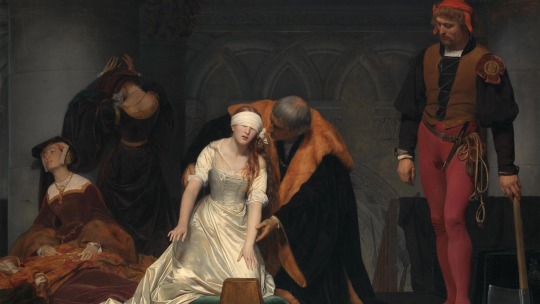
The Execution of Lady Jane Grey by Paul Delaroche (1833). Source: The National Gallery website.
On this day in 1554, Lady Jane Grey was executed. The shortest reigning English monarch and probably the most tragic, Lady Jane had the misfortune to have a technical claim to the throne, a wicked father-in-law and to be a Protestant when the rightful heir to the deceased King Edward VI was his sister, Mary, a Roman Catholic. The Duke of Northumberland, one of the leaders of the Calvinist faction who had dominated the court of King Edward and pushed the English Reformation much further than had ever been intended by its originator, King Henry VIII, was determined that England should not revert to Catholicism under Henry’s daughter, Mary. Northumberland cannily married his son to Lady Jane on whom Protestant hopes rested, had her crowned queen and ordered the arrest of Mary. Unfortunately for the coup plotters, most of the country rallied to Mary and within nine days it was Jane and her father-in-law who were under arrest. There is little evidence that the seventeen-year old girl was anything other than a hapless pawn of Northumberland’s ambition, but this did not save her from Queen Mary’s vengeance or the headsman’s axe.
Perhaps the injustice of Jane’s fate explains her glowing white apparition which will appear, hovering above the ground, at the Tower of London today.
9 notes
·
View notes
Photo


#Becoming Elizabeth#becomingelizabethedit#John Dudley#Robert Dudley#Duke of Northumberland#Earl of Leicester#BES1E7
65 notes
·
View notes
Text
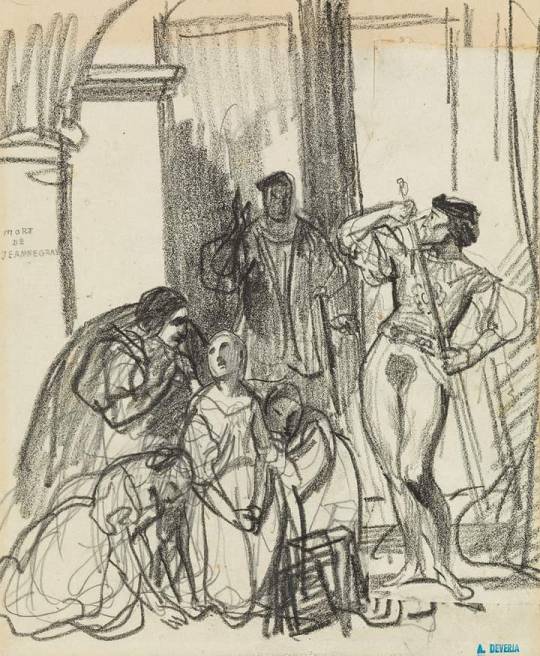
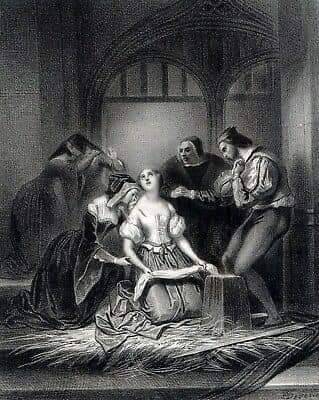
The rough sketch and final engraving for 'The execution of Lady Jane Grey' by French artist Achille Devéria (1800 - 1857). A brilliant engraving but Jane wasn't beheaded with a sword.
Jane was named queen after the death of her cousin, King Edward VII. But the late king's oldest sister took her right as the next heir, deposing Jane after nine days on July 19, 1553. Queen Mary originally spared her life; Jane soon became perceived as a threat to the Crown when her father, Henry Grey, 1st Duke of Suffolk, became engaged with Wyatt's rebellion against Queen Mary's ambition to marry Philip II of Spain.
Lady Jane was executed on February 12, 1554, right after her husband, Guildford Dudley, the son of the chief minister under King Edwards VII, John Dudley, Duke of Northumberland. 11 days after the couple's death Jane's father was also executed.
#the tudors#tudor#tudor history#tudors#mary tudor#mary i of england#jane grey#lady jane grey#mary of england#mary i#guildford#dudley#henry grey#john dudley#duke of suffolk#duke of Northumberland#1553#1554#engraving
38 notes
·
View notes
Text
Hans Holbein the Younger “An unidentified man”
HANS HOLBEIN THE YOUNGER (1497/8-1543) An unidentified man c.1532-43Black and coloured chalks, white bodycolour, pen and ink, and brush and ink on pale pink prepared paper | 27.1 x 18.9 cm (sheet of paper) | RCIN 912260 Wikipedia
While researching Sir William Parr, 1st Marquess of Northampton, I came upon this portrait AGAIN! According to Susan James’ “Catherine Parr: Henry VIII’s Last Love”,…
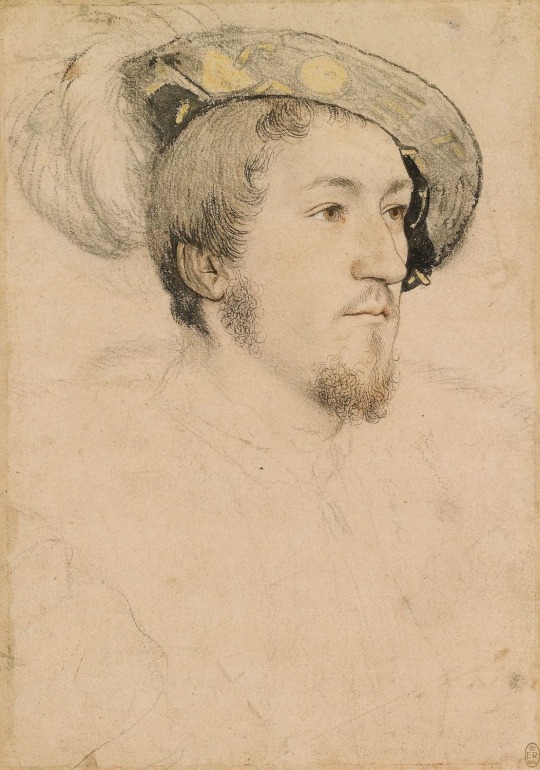
View On WordPress
#an unidentified man#Duke of Northumberland#George Boleyn#hans holbein#John Dudley#Lord Lisle#Marquess of Northampton#viscount Rochford#william parr
4 notes
·
View notes
Text
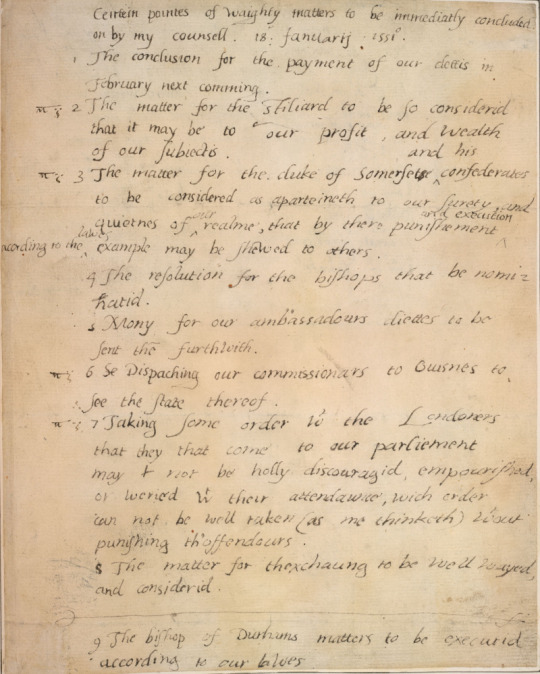
Memorandum of a meeting of Edward VI's Council dated 18th January 1551 (1552 by the modern calendar) which is written in the King's own hand. Item 3 refers to the Duke of Somerset and reads :
"The matter for the Duke of Somerset and his confederates to be considered as appertaineth to our surety and quietness of our realm, that by their punishment and execution according to the laws, example may be showed to others.'
The original text actually only refers to Somerset's confederates and their punishment... not execution. Did the 14 year old Edward make the decision himself to proceed with his Uncle's death or did someone "influence" him ???🤔🤔
#becoming elizabeth#edward vi#edward seymour#duke of Somerset#john dudley#duke of northumberland#lord protector#🪓🪓
11 notes
·
View notes
Text
Guildford Dudley, Husband of Lady Jane Grey
Guildford Dudley, Husband of Lady Jane Grey
19th C. image of Guildford Dudley from the (c) Palace of Westminster; Supplied by The Public Catalogue Foundation
“Your loving and obedient son wishes unto your grace long life in this world with as much joy and comfort, as did I wish to myself, and in the world to come joy everlasting. Your most humble son to his death, G. Duddley” – note in a prayerbook from Guildford to his father-in-law,…
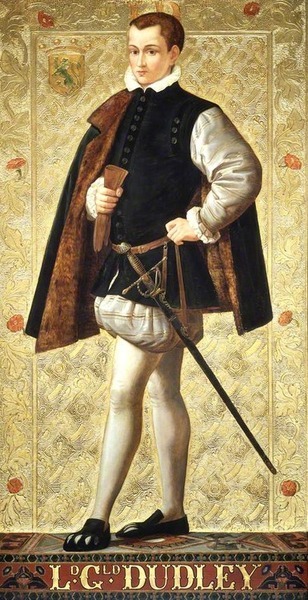
View On WordPress
#Archbishop of Canterbury#Duchess of Northumberland#Duke of Northumberland#Duke of Suffolk#Edward VI#Elizabeth I#Guildford Dudley#Henry Grey#Henry VIII#Jane Guildford#John Dudley#Katherine Grey#King of England#King of Spain#Lady Jane Grey#Lady Margaret Clifford#Marchioness of Northampton#Mary Grey#Mary I#Philip II#Queen of England#Simon Renard#Thomas Cranmer#Tower of London#Tudor history#Wyatt’s Rebellion
10 notes
·
View notes
Text
Alnwick Castle hopes to trace school wartime evacuees - BBC News
What a beautiful iniziative
#Duchess of Northumberland#chelsy davy#family#Friends#Lady Melissa percy#Percy family#Duke of Northumberland
0 notes
Photo



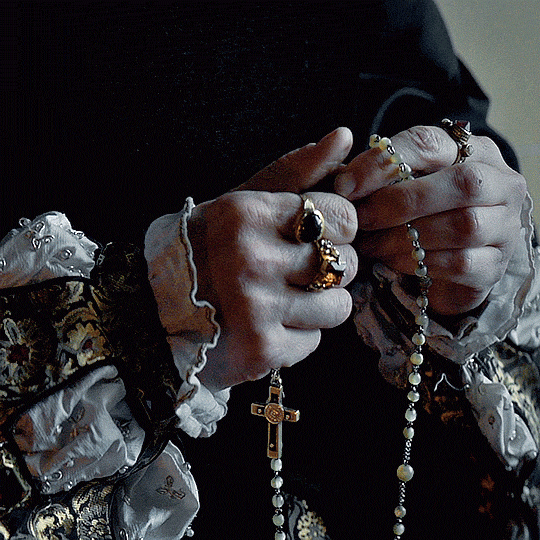
I thought I could stop her, I thought I could scare her.
I will not fright easy.
Mary I Tudor in Becoming Elizabeth (2022)
#Becoming Elizabeth#Mary Tudor#Mary I Tudor#Mary I#Pedro (Becoming Elizabeth)#Edward Seymour#Edward Seymour Duke of Somerset#John Dudley#John Dudley Duke of Northumberland#Romola Garai#period drama#becomingelizabethedit#perioddramaedit#gifshistorical#periodedits#tudoredit#my gifs#my collages
178 notes
·
View notes
Photo


Have her, please. If she’ll have you.
BECOMING ELIZABETH 1.08 TO DEATH WE MUST STOOP
#I laughed so loud! I'm not kidding what a mess he got himself in LOLLLL#becoming elizabeth#becomingelizabethedit#becoming elizabeth spoilers#john dudley#john dudley duke of northumberland#robert dudley#jamie parker#jamie blackley#perioddramaedit#period drama#weloveperioddrama#perioddramasource#onlyperioddramas#gifshistorical#userperioddrama#userbennet#cortegiania#tvfilmsource#tvfilmedit#tvedit#tvfilmgifs#tvgifs#the lady elizabeth#aethelreds#katherynparr#outrowingss#imjustasmith#tudorerasource#tudoredit
221 notes
·
View notes
Photo


#Becoming Elizabeth#becomingelizabethedit#Robert Dudley#Earl of Leicester#John Dudley#Duke of Northumberland#BES1E6
46 notes
·
View notes
Text
it really is fascinating to me that essentially the only successful rebellion in the tudor era is pulled off by mary tudor
#🗡️#although i think there's something to be said#for the dukes of somerset and northumberland#who in effect stage coups over Who's In Control Of Edward#without really staging coups over the monarchy itself#(somerset tries to kidnap edward and it is notoriously unsuccessful)#you could also put henry vii as the other successful rebellion of the tudor era#but then you're left with only the tudors managing to upstage the tudors lmao
8 notes
·
View notes
Text
btw, the violinist in tmp 4? he's probably james smithson, of "founder of the smithsonian institute" fame
so what do we know about our violinist? he grew up in alnwick abbey, he was illegitimate and had legitimate full siblings, a father "certain of his celestial significance", and he has a nephew to whom he leaves his violin
and smithson? well, his father restored alnwick abbey in the 1750s, which was in ruins up until then. smithson was the only illegitimate child of any of the dukes there in the 1700s, which is when the statement is set
smithson also left his estate to his nephew after his death, with the condition that his fortune would establish the smithsonian institute if his nephew died without any children.
here's a point of divergence, however. in our timeline, smithson was a chemist and mineralogist. in tmagp's timeline, he was a violinist. however, as u/New_Helicopter836 pointed out to me on reddit, when smithson's body was disinterred by andrew graham bell, his right little finger was such that it suggests he played "the harpsichord, the piano, or a stringed instrument such as a violin"
looking at smithson's life, he left for university in 1782, so it's likely that tmagp 4 is set around the same time. it might be a bit earlier since the royal court orchestra moved from mannheim to munich in 1778 (putting smithson at about 13), it might be another point of divergence, or smithson is describing it this way to call back to its earlier significance. i'm not sure, but it's weird either way.
all that said, i'm not terribly sure why smithson describes his father (sir hugh smithson/percy, duke of northumberland) as "certain of his celestial significance", especially when the only other time he says celestial is to describe the violin's music. the user i mentioned before found that sir hugh, a major patron of architectural projects, had an observatory built, but i find smithson's language too specific. is his father an avatar too? mannheim is only a bit north of schwartzwald, after all, and this is about thirty years before tmag 23 where albrecht writes to jonah magnus.
let's look a little at smithson's bequest to found the smithsonian institute in the first place. smithson asked for it to be "an establishment for the increase and diffusion of knowledge among men". the magnus institute, notably, is described in the arg as a place of education, and it was founded in 1818. although smithson died in 1829 and his nephew in 1835, the original smithsonian (the columbian institute) was granted a charter by the us government in 1818.
the letter is strangely absent of any names for the violinist or his family, and i can't help but wonder if this is why. and if it is because this is smithson - is this related to why the magnus institute exists instead of the magnus archives? the smithsonian, before it was renamed, was originally granted a charter by the us govt in 1818 - the same year that the magnus institute was founded in tmagp.
this is set 30 years before we know anything of jonah magnus, at least in tmag, so is it possible that he persuaded smithson to fund his educational institute focusing on the supernatural? the changed course of smithson's life from scientist to supernatural violinist would certainly be conducive for that, not least to mention the strange absence of his fortune from his letter to his nephew.
#tmagp#tmagp spoilers#already posted this on reddit but fuck it im doing it here too#i'm strangely suspicious that his dad might be an earlier body that jonah possessed#briefly brushing his dad aside as “certain of his celestial significance” just seems like a perfect description for him but it's so vague#and it wouldn't explain the whole smithsonian/magnus institute thing but the refs are way too specific to smithson#for me to believe otherwise#alnwick abbey was legit a ruin for all of the 1700s until sir hugh and his wife elizabeth restored it so it's either james#or a completely fictional equivalent but why so many specific refs to his life then???#the magnus protocol
510 notes
·
View notes
Text
The existence of Doctor Who in the Good Omens universe implies one of two things:
a) Crowley occasionally dyes his hair brown and dons his stage name of David Tennant to pick up some parts whenever he feels like it (I mean, honestly--The Internet's Principal Scottish DILF would be a temptation of MYTH) because he likes playing wacky little characters and can pass it off as a form of temptation whenever Hell starts sniffing around, or,
b) There happens to be a Scottish actor named David Tennant who shares an exact likeness with Crowley, save for the red hair and snake eyes. Crowley gets told that he looks and sounds like David Tennant a lot and is quite tired of hearing about this bloke. Aziraphale thinks it's funny.
If we're going with Route B, imagine that since Aziraphale is well aware of who David Tennant is (since he likes bugging Crowley about it so much) and also because he is a lifelong Shakespeare fan, some time in 2013 he finds a recording by the Royal Shakespeare Company of Richard II, starring David Tennant as the lead role. He's super giddy about this and calls Crowley to ask if he wants to watch it with him on his television or antique projector or whatever a Southern pansy like Aziraphale would have. Aziraphale can't help but mention that David Tennant is playing the lead role and at the mention of Tennant's name Crowley rolls his eyes (Aziraphale can sense it through the phone) and tells him to enjoy it by himself. Aziraphale is giggling as he hangs up.
So Aziraphale puts on the play and can barely contain his excitement, though he is a little disappointed that it doesn't look exactly how it did when he saw the first showing all those years ago, but what can you expect? He conjures up a bowl of grapes, for old time's sake. He starts cackling when a long, auburn-haired David Tennant finally appears. He looks so much like Crowley that Aziraphale nearly phones him again, but decides against it--he doesn't want to miss a thing.
Aziraphale finishes his bowl of grapes some time near the end of Act II--most of the excitement has worn off and he's now just sitting and enjoying the play. Act III starts, scenes one and two carry out, and then it comes to scene three. Aziraphale's giddiness returns, because this contains one of his favorite speeches. "Northumberland comes back from Bolingbroke," The Duke of Aumerle says, and Aziraphale hasn't realized he's scooted to the end of his armchair. He gives a little "wahoo!" as Richard II starts into his monologue.
And then, as Richard is consoling the Duke of Aumerle, something unexpected happens:

Aziraphale never mentions the play again.
#good omens#richard ii#doctor who#crowley#aziraphale#crowley x aziraphale#ineffable husbands#tenth doctor#david tennant#aziracrow
400 notes
·
View notes
Text



THE DUDLEYS according to Starz
Edmund Dudley, president of King Henry VII's council as portrayed by Morgan Jones in The Spanish Princess
John Dudley, 1st Duke of Northumberland head of King Edward VI's council as portrayed by Jamie Parker in Becoming Elizabeth
Guildford Dudley, later consort to Jane Grey, disputed Queen of England as portrayed by Jacob Avery in Becoming Elizabeth
Robert Dudley, later Earl of Leicester, the longtime favourite of Queen Elizabeth I who often acted as her unofficial consort as portrayed by Jamie Blackley in Becoming Elizabeth
#the spanish princess#becoming elizabeth#thespanishprincessedit#becomingelizabethedit#perioddramaedit#morgan jones#jamie parker#jacob avery#jamie blackley#edmund dudley#john dudley#guildford dudley#robert dudley#my edits
89 notes
·
View notes
Text

OTD 1553. Death of King Edward VI at the age of 15 at Greewich Palace. A strict and even bigoted Protestant, Edward's "Devise" to alter the succession, bypassing both his half sisters in favour of Lady Jane Grey was to prove unsuccesful 👑🪓
#edward vi#henry viii#jane seymour#mary#elizabeth#my devise#protestant#lady jane grey#duke of Northumberland#oliver zetterström#becoming elizabeth#book of common prayer#👑🪓
11 notes
·
View notes
Text
Fantasy Guide to Regents and Regencies
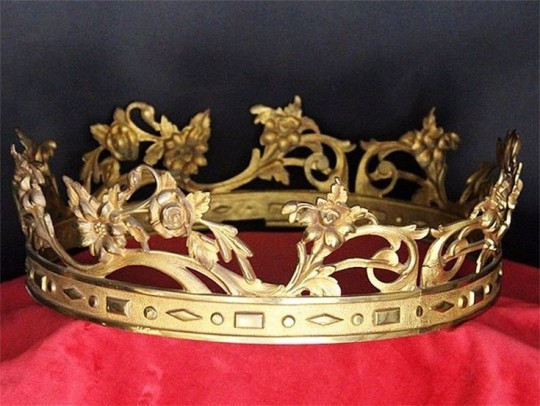
A Regency is a period of time where another party rules of behalf of a monarch who is either too young, too ill or absent. A Regency can either be the monarch's own choice or a decision made for them on their behalf by a third part, usually government. Either way, a Regent is selected to act as temporary Head of State whilst the monarch is incapable of ruling.
Who can be a Regent?

A Regent is an important office, even though its a temporary one. Regencies of child monarchs generally either go to the Consort, though there are all sorts of reasons why this can be blocked. Sometimes governments and kingdoms are uncomfortable with foreign consorts with uncertain allegiances ruling the kingdom or sometimes the government just doesn't approve on the basis that they doubt the Consort's skill set. Other candidates for Regencies are nearly always family members such as uncles, aunts, cousins and even children of the monarch (especially if they are absent from the country or ill). But a Regent doesn't have to be a royal. They could just be a noble elected to the position (Sir William Marshall) or even one that siezes power for themselves (Richard of York) or even a council made up of Regents, headed by a Lord Protector.
Who makes a Regent?

As I mentioned before, monarchs can appoint the Regent that will replace them in certain cases. For instance, a monarch would chose the Regent if they were voluntarily leaving the country or they might designate a chosen Regent on their deathbed or just in case of emergency. But they wouldn't chose a Regent if they were ruled mentally incompetent. In those cases, the government would chose.
The Powers and Responsibilities of a Regent
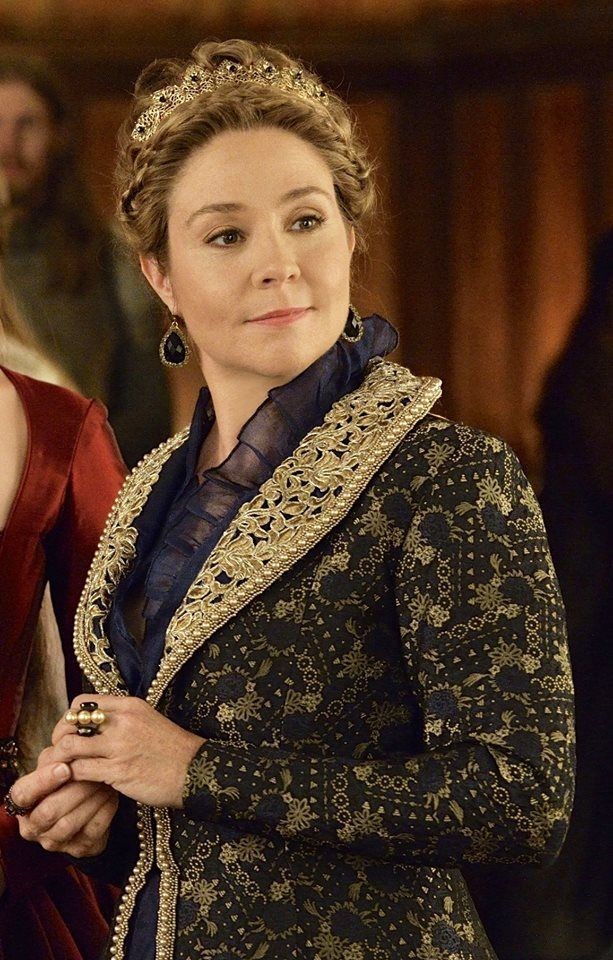
A Regent is the acting head of state but they are not the monarch. They do not have the right to wear crowns or have a coronation and are not granted the hall pass of divine right. A Regent is referred to as their own title, say for example Duke of X, Regent of Y or Prince Regent. They are merely there to fill in for the monarch. A Regent would meet with the government, make decisions with the approval by government and sign offical documents. In cases of an absent monarch, a Regent may need the approval of the monarch themselves. Regents of child monarchs would usually include their charges in the country's running, either as spectator or student. A Regent, being temporary Head of State, would also have the responsibility of ensuring a natural cessation of their power to their monarch when their term is over. Some regents are better than others at handing over power.
Notable Regents of History
George IV, Richard III, Anne of Austria, Katheryn Parr, Richard of York, Margaret of York, Katherine of Aragon, Catherine de Medici, Louise of Savoy, Phillippe duc de Orléans, Edward Seymour Duke of Somerset, Sir William Marshall, John Duke of Bedford, Humphrey Duke of Gloucestershire, John Dudley Duke of Northumberland.
#Fantasy Guide to Regents and Regencies#Regent#Royal guide#Fantasy Guide#Writing guide#writers resources#writing#writeblr#writing resources#writing reference#writing advice#writer#writer's problems#spilled words#writer's life#Writer's reference#Reference#nanowrimo
665 notes
·
View notes